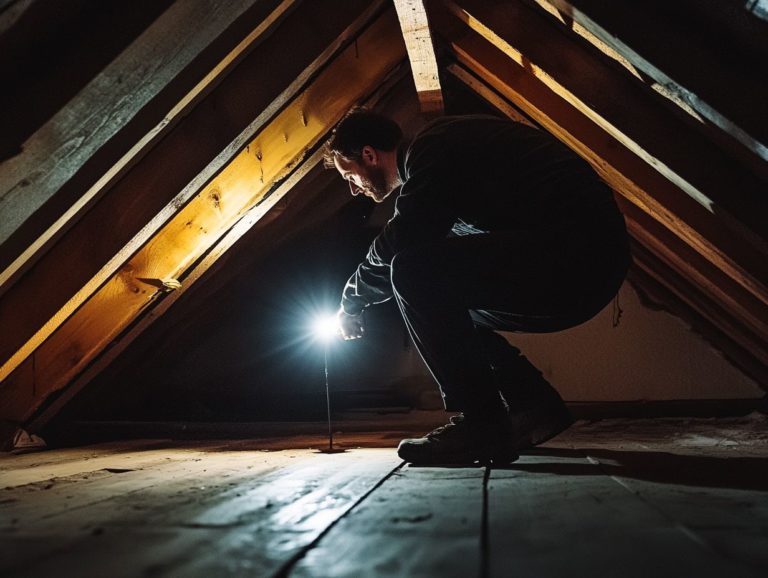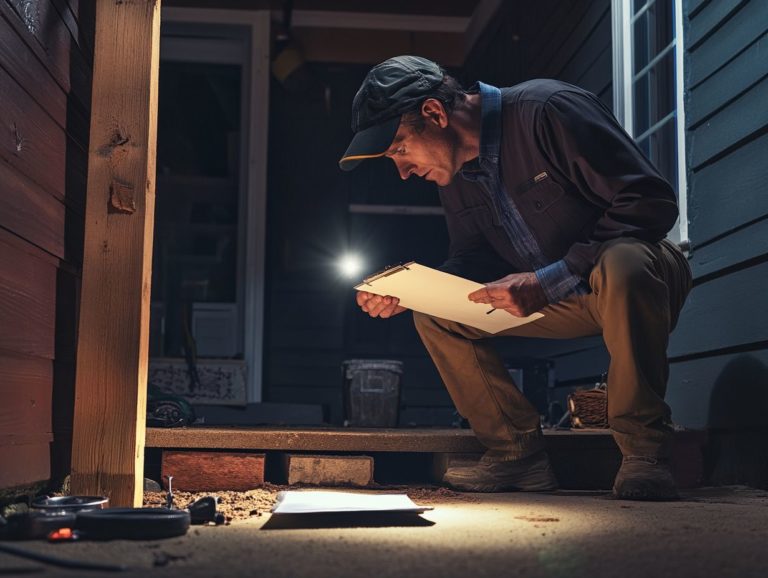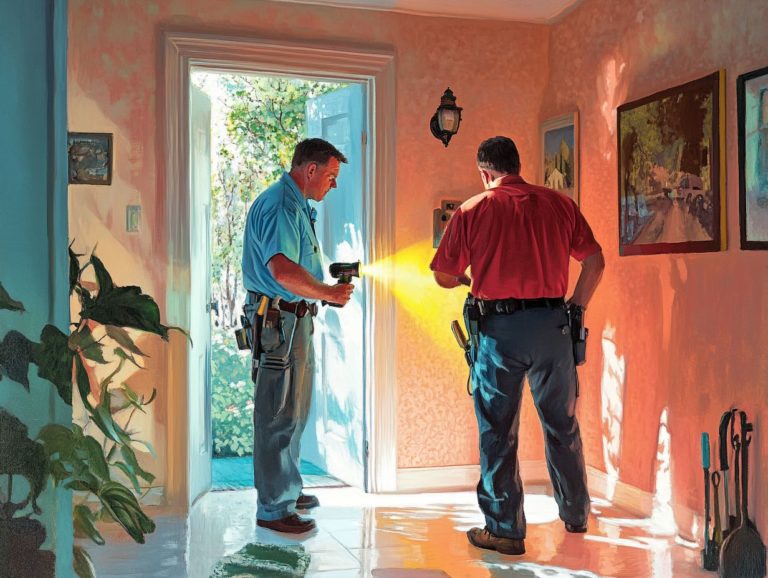Understanding Home Inspector Qualifications
When you’re buying or selling a home, the role of a home inspector is vital and often clouded in confusion.
This article will illuminate what a home inspector actually does, what qualifications they should possess, and key factors to weigh when selecting one. It will also tackle common misconceptions that can misguide homeowners and highlight the importance of ongoing education in this profession.
By the end, you ll have a thorough understanding of home inspector qualifications and how to ensure you re partnering with the right professional for your needs.
Contents
- Key Takeaways:
- What is a Home Inspector?
- Qualifications for Home Inspectors
- Certifications and Licenses
- Choosing a Qualified Home Inspector
- Common Misconceptions about Home Inspector Qualifications
- Continuing Education for Home Inspectors
- Frequently Asked Questions
- What are home inspector qualifications?
- Why is it important to understand home inspector qualifications?
- What type of education and training do home inspectors typically have?
- Is certification required to become a home inspector?
- How can I verify a home inspector’s qualifications?
- What happens if a home inspector is not qualified?
Key Takeaways:
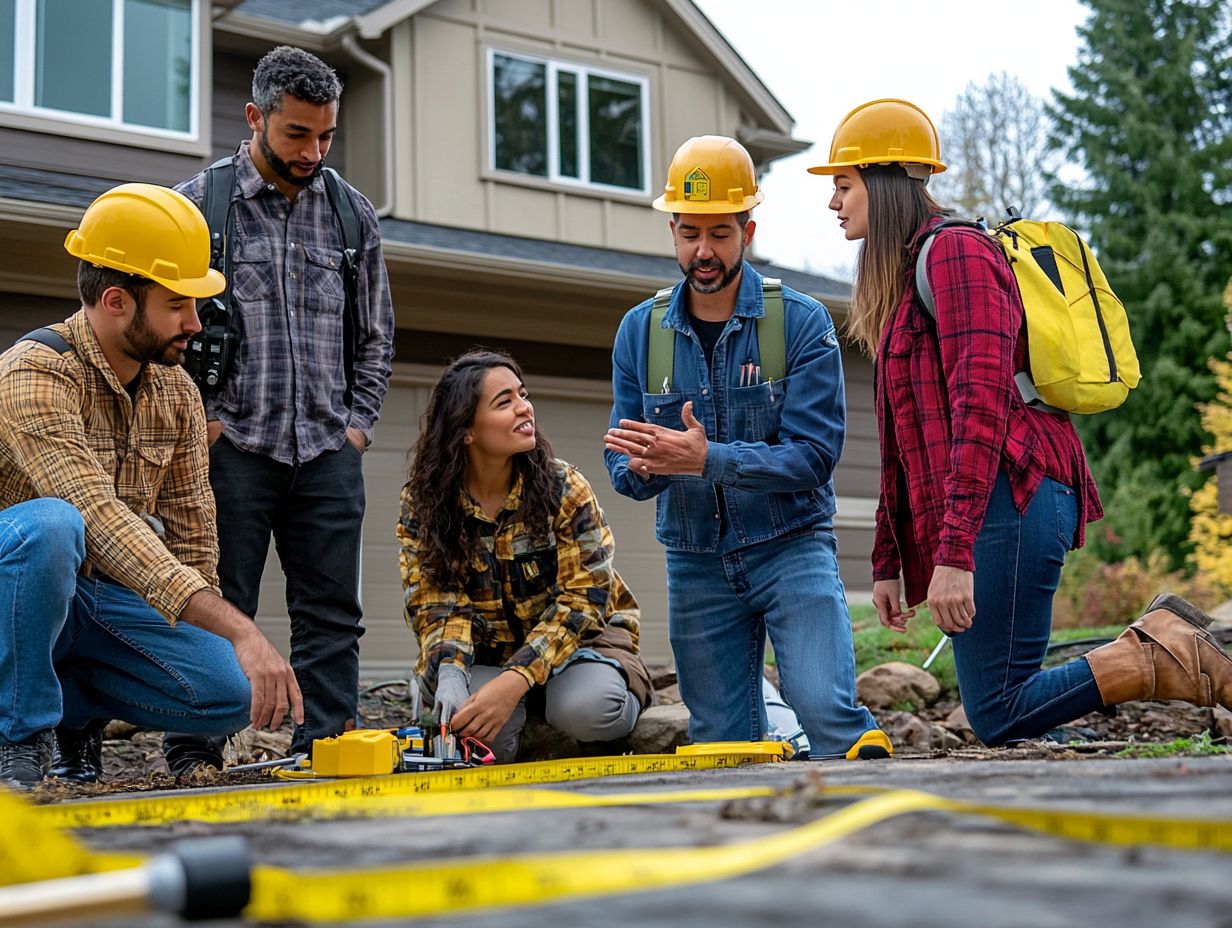
Home inspectors are essential in the buying process. They examine properties for issues and provide detailed reports.
Qualifications for home inspectors include education, training, certifications, and licenses.
It’s crucial to choose a qualified inspector with a strong knowledge base and experience.
Continuing education is vital for home inspectors to stay updated on industry standards and techniques.
Homebuyers should not overlook this aspect when choosing a reliable inspector.
What is a Home Inspector?
A home inspector is a qualified professional dedicated to evaluating the condition of your home, focusing on structural elements, systems, and safety features.
Whether you’re in Philadelphia or elsewhere in Pennsylvania, a home inspector plays a vital role in ensuring properties meet specific inspection standards.
This expertise helps prospective homeowners like you uncover potential issues before finalizing a real estate transaction.
By doing so, you safeguard your investment and ensure compliance with relevant laws, giving you peace of mind as you move forward.
Role and Responsibilities
A home inspector has many responsibilities. They evaluate residential properties and deliver detailed reports to inform homeowners about their investments.
This essential profession is not just about checking structural integrity, electrical systems, and plumbing installations; it also entails identifying potential hazards and outlining necessary repairs.
After completing these evaluations, the inspector organizes a report highlighting critical findings and providing actionable recommendations. This ensures you are fully informed about your property.
After the inspection, the inspector often guides you through your responsibilities, discussing maintenance practices and potential upgrades to enhance your home.
This careful attention to detail fosters transparency and gives you the power to make informed decisions about your property, ultimately enhancing both its safety and long-term value.
Qualifications for Home Inspectors
To become a qualified home inspector, you must meet specific qualifications, typically involving formal training in home inspection and following Pennsylvania laws. Understanding the role of home inspectors is also crucial in this process.
This process equips you with vital skills that can make a big difference!
Education and Training Requirements
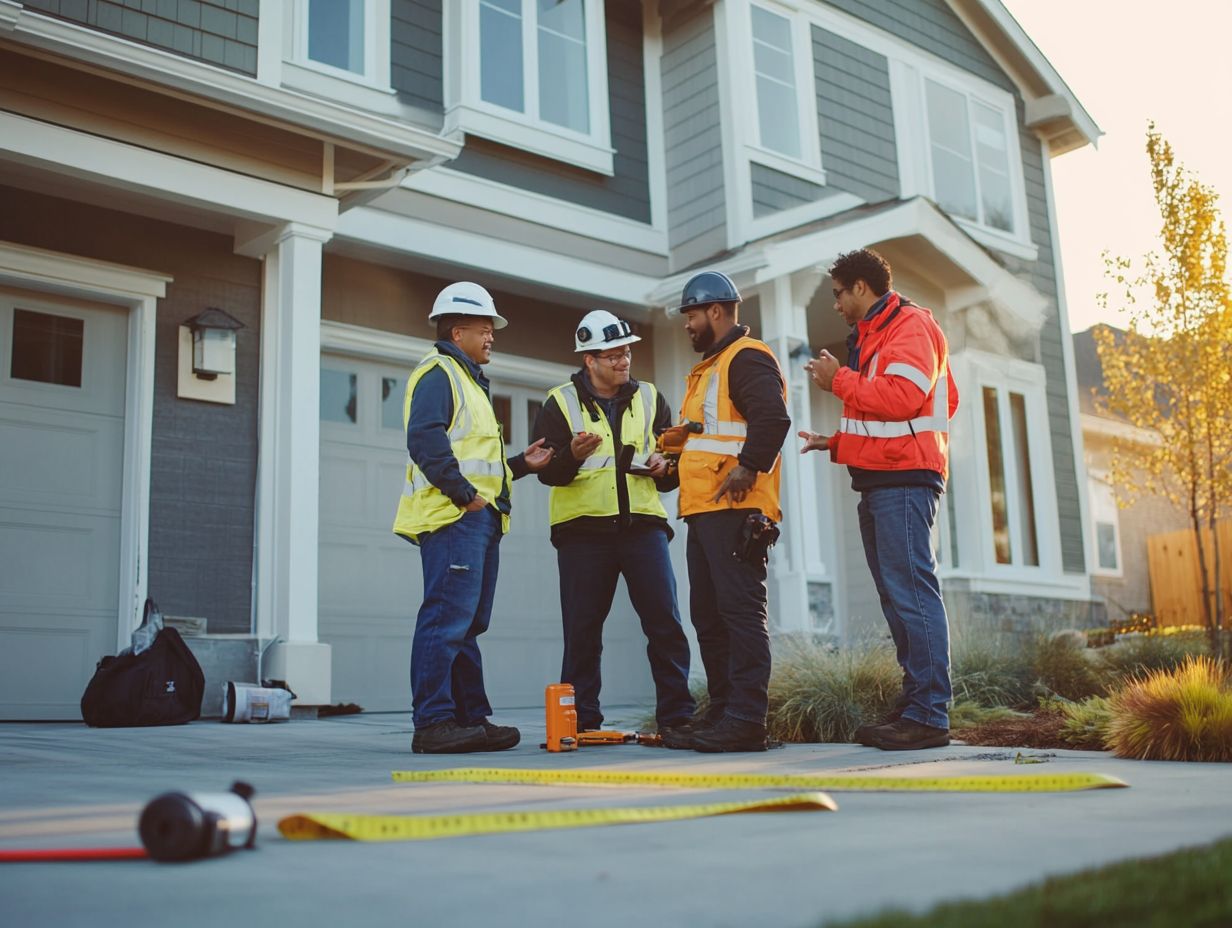
Successful home inspectors in Pennsylvania typically embark on a comprehensive training program, often involving a rigorous 120-hour course. This prepares you for the National Home Inspector Exam and equips you with essential skills for effective inspections.
These programs explore various aspects of home systems and structures while providing invaluable hands-on training, crucial for building your confidence in the field.
Upon completing your coursework, you’ll need to pass the National Home Inspector Exam to obtain certification, a vital credential in this industry.
In Pennsylvania, it s also mandatory for home inspectors to engage in ongoing continuing education to maintain their licenses, ensuring you remain current with the latest building codes and inspection techniques.
By navigating these educational pathways, you lay a strong foundation for a successful career in home inspections.
Ready to find the right home inspector? Start your search today!
Certifications and Licenses
Obtaining your home inspection certification is essential for operating legally and effectively in the field. It shows you re committed to high standards and following the rules set by state authorities.
In Pennsylvania, you must navigate a structured application process. This typically involves passing a state-approved exam and meeting specific educational requirements.
Securing that certification is just the beginning. You must continue your education to stay updated with industry changes and emerging technologies.
Joining a reputable membership association opens doors for networking opportunities and boosts your credibility with clients. Remember, following Pennsylvania’s regulations will shape how you run your business and build trust with potential customers.
Choosing a Qualified Home Inspector
Choosing a qualified home inspector is a crucial decision for homeowners, especially in a competitive real estate market like Philadelphia.
It s vital to ensure you receive thorough home inspection services tailored to your needs.
Factors to Consider
When selecting a home inspector, consider various factors such as their experience, the quality of their inspection report, and the overall costs involved.
Additionally, assess the inspector’s credentials to ensure they are certified and have a solid reputation in the industry.
A comprehensive inspection report should detail findings clearly and provide actionable recommendations for any issues identified.
Ask if the inspector offers supplementary services like radon testing or mold inspection to enhance your overall assessment of the property.
Understanding the potential costs associated with these additional services is essential for making an informed decision.
Common Misconceptions about Home Inspector Qualifications
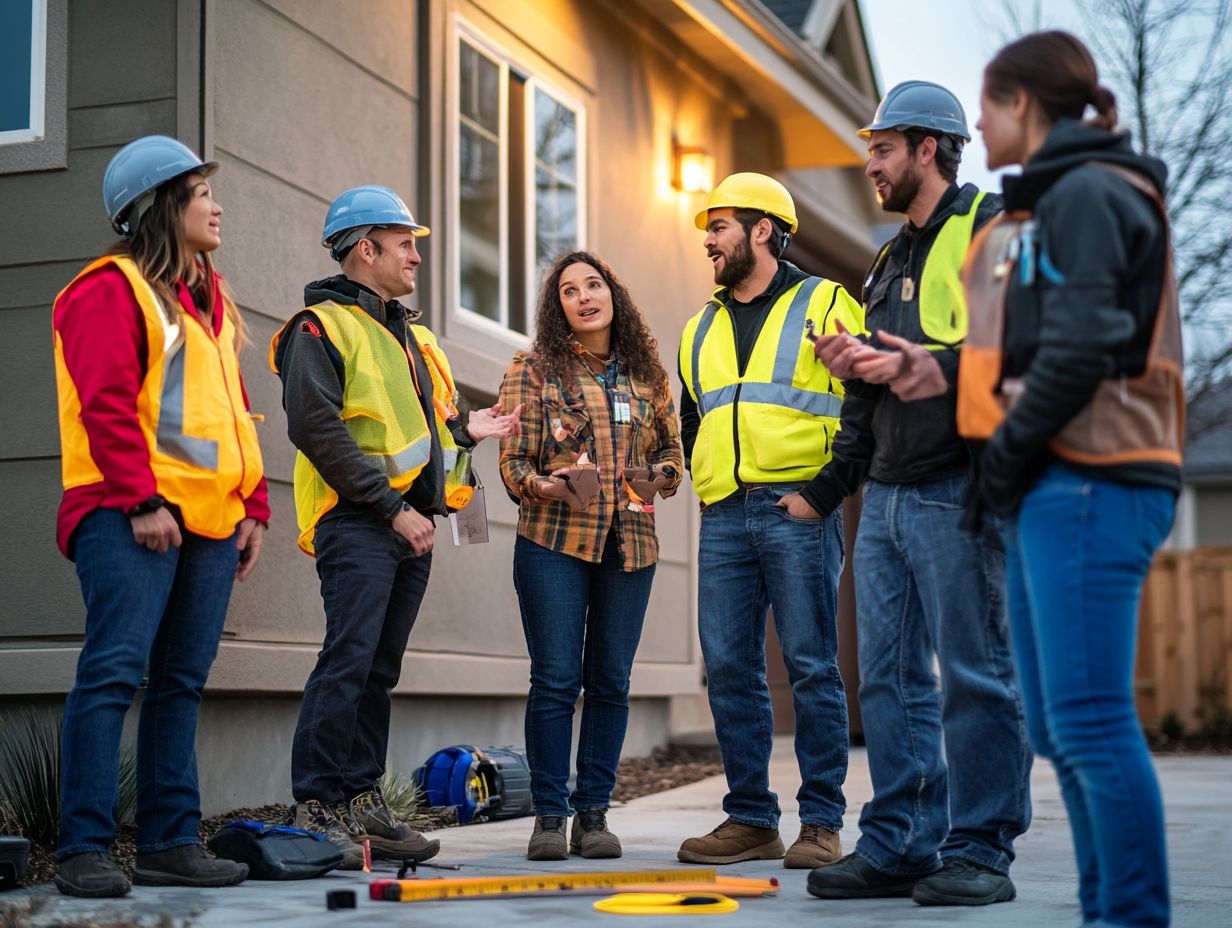
You may encounter misconceptions about home inspector qualifications, leading to underestimating the rigorous training and certifications required to become a professional home inspector in Pennsylvania.
Understanding the depth of this profession is essential for recognizing the expertise that home inspectors provide.
Debunking Myths and Clarifying Facts
One common myth is that anyone can conduct a home inspection without specialized training or certification. In reality, professional home inspectors must complete a certification course and often carry liability insurance for their services. This requirement ensures they have the crucial knowledge and skills to identify potential issues within a home.
Many mistakenly believe home inspections are straightforward tasks. However, the process requires a deep understanding of structural integrity, electrical systems, plumbing, and safety protocols.
Errors and omissions insurance is vital as it protects both the inspector and the homeowner from potential lawsuits due to oversights during an inspection. Specialized training is not just advantageous; it s necessary.
It equips inspectors to handle complex situations, recognize subtle signs of damage, and provide accurate evaluations. This ultimately contributes to safer real estate transactions, ensuring peace of mind for everyone involved.
Continuing Education for Home Inspectors
Continuing education is essential for home inspectors to stay informed about the latest industry standards, inspection techniques, and emerging technologies.
By prioritizing ongoing learning, you elevate your qualifications and expertise, positioning yourself as a trusted professional in the field.
Check local listings for qualified inspectors or consider pursuing your certification to enhance your skills.
Importance and Available Options
Continuing education is crucial in the home inspection business. It helps you meet licensing and membership requirements while enhancing your skills.
You have many options for continuing education. State-mandated courses keep you following local laws and rules.
Online training programs offer flexible scheduling. They cover a wide range of specialized topics to deepen your expertise.
Hands-on workshops provide valuable hands-on experience. These workshops also create networking opportunities with peers.
By embracing learning opportunities, you can deliver exceptional service. This adaptability contributes to the growth and credibility of your business.
Frequently Asked Questions
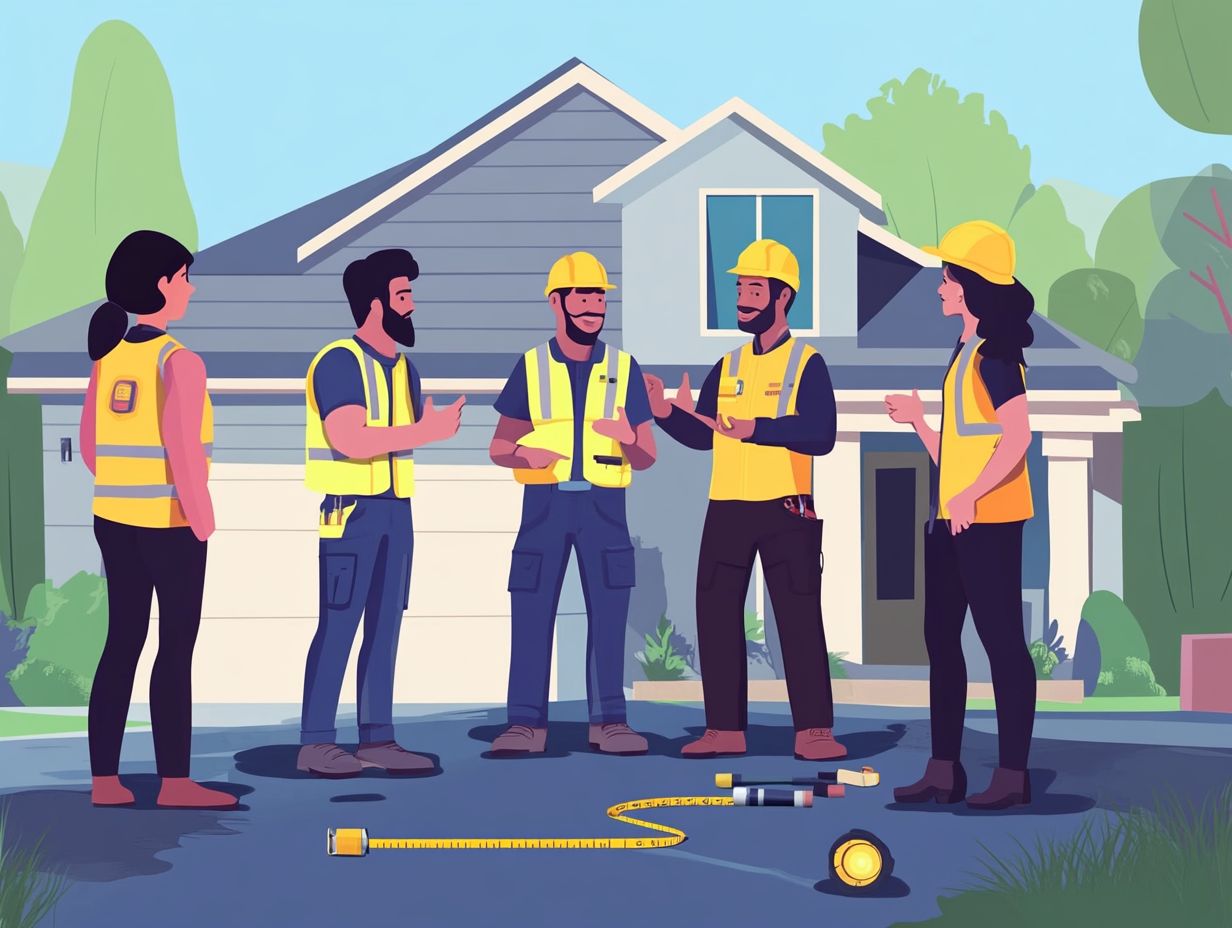
What are home inspector qualifications?
Home inspector qualifications include the education, training, and experience needed to become certified. For detailed insights, including what to look for in a home inspector’s credentials, these requirements vary by state but often include completing a home inspection course and passing an exam.
Why is it important to understand home inspector qualifications?
Understanding these qualifications ensures the inspector has the skills to accurately assess a property. Gaining insight into the home inspector’s role helps you make informed decisions during a home purchase.
What type of education and training do home inspectors typically have?
Home inspectors usually come from backgrounds in construction or engineering. They often complete specialized courses covering essential topics like building codes and plumbing systems.
Is certification required to become a home inspector?
Yes, most states require inspectors to pass a certification exam to obtain a license. Check your state s regulations for specific requirements.
How can I verify a home inspector’s qualifications?
You can verify qualifications by checking credentials and licenses. Always ask for proof of their completed training and check with your state’s licensing board.
What happens if a home inspector is not qualified?
If unqualified, an inspector may miss vital issues, leading to inaccurate information. Always verify qualifications to ensure a thorough inspection.



